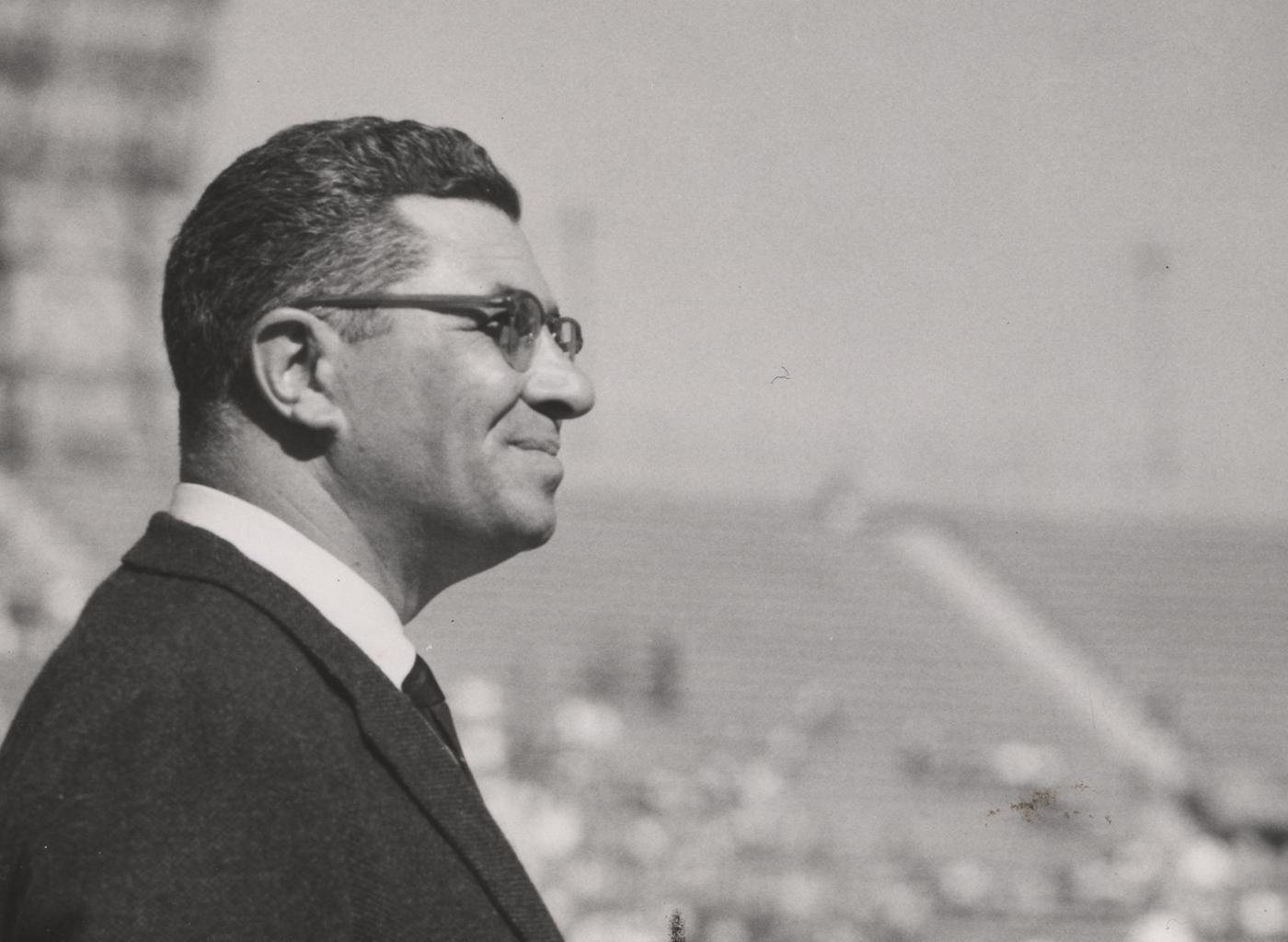Leadership Skills of the Experts – Richard Branson, Elon Musk & Henry Ford Reveal Their 7 Best Tips
We’ve all read lists defining the true meaning of leadership. A great leader must have several skills to inspire a team. The most successful entrepreneurs have their own opinions on effective leadership skills.
Is great leadership about inspiring others to follow your vision? Or, is it about building a great company culture? Maybe true leaders put the needs of others above their own.
In truth, leadership encompasses these skills, and much more. The world’s leading entrepreneurs understand this. They don’t focus on individual attributes. Instead, they bring a host of skills together to create a strategic leadership style.
You can do the same. Here are seven leadership tips from leading entrepreneurs that highlight their effective leadership skills.
Leadership Skills of the Experts
Richard Branson and Elon Musk – Leaders Break Rules
Richard Branson built his business empire the hard way. He got his start selling records door-to-door. This evolved into the Virgin music label, and the company hasn’t looked back since. Over the years, Branson has dipped his toes in several industries and experienced a lot of success throughout his career.
For Branson, the desire to break established rules is one of the most effective leadership skills. He describes himself as a “Rule-breaker – because I never learned the rules in the first place.”
He goes on to give one of the best examples of company culture beliefs. “To change the game is at the heart of what Virgin stands for,” he says. “So, the company culture has always been: ‘Don’t sweat it: rules were meant to be broken.’”
What Branson does here is point to innovation as a key leadership skill. He isn’t satisfied with accepting things the way they are. He wants to bring about change that’s positive for his company and its people.
Innovators are always rule-breakers. They want to change systems and processes for the better. Elon Musk notes that innovators face backlash and resistance. He says: “If something is important enough, even if the odds are against you, you should still do it.”
Neither Branson nor Musk back down from the challenges that being innovators create. They face them head on, with confidence in their new ideas. They take risks and break rules. All effective leaders must be capable of going against the tide.

Henry Ford and Reed Markham – Leaders are Problem Solvers
Henry Ford is a legend in the vehicle industry. He introduced the Model T Ford and created a system of low-cost mass production. Ford also believed in offering workers high wages in return for their efforts.
However, he focused on other leadership traits too. In particular, he noted how leaders must solve problems. As he puts it: “Don’t find fault. Find a remedy.”
Other great leaders agree with this opinion. Prolific author and leadership expert, Reed Markham, adds his own spin. “Successful leaders see the opportunities in every difficulty rather than the difficulty in every opportunity,” he says.
Both men highlight how an inability to confront challenges is one of the major leadership weaknesses. Instead, they focus on how to solve their organisation’s problems. Rather than passing blame and lamenting the emergence of a new issue, they rise to the challenge. This creates a positive approach to problem-solving that spreads throughout their organisations.
Sam Walton and Jack Welch – Leaders Raise Others Up
Walmart founder, Sam Walton, grew his small supermarket chain to become one of the world’s largest brands. You can now find a Walmart in practically any American town. Walton believed that his organisation’s success hinges on its people. As a leader, he emphasised building confidence in others to keep them engaged.
“Outstanding leaders go out of their way to boost the self-esteem of their personnel,” he says.“If people believe in themselves, it’s amazing what they can accomplish.”
Great leaders don’t sit behind a desk and bark orders at their teams. What Walton shows us is that a leader takes responsibility for guiding the team. They help individuals to reach their potential and bolster their confidence to get results.
Former General Electric CEO Jack Welch reinforces this philosophy. “Before you are a leader, success is all about growing yourself,” he says. “When you become a leader, success is all about growing others.”
So how do you do it? Successful leaders encourage positive workplace behaviours. Use your own experiences to help your people to develop. Find what motivates them, and figure out how you can help them to reach their goals. With effective employee development methods, you raise your people to the levels they aspire to. Their skills improve, which benefits your organisation.
Richard Branson and Teddy Roosevelt – Leaders Hire Well
Richard Branson also takes a direct interest in hiring, especially when recruiting new leaders. He says that a person must fit an organisation’s culture above all else. However, there’s something else that he looks for when interviewing candidates.
“I’m quite involved in hiring for leadership, and I look to hire my weaknesses,” he says.
With this quote, Branson shows us that he knows he isn’t perfect. No leader is. Developing a strategic leadership style involves recognising your leadership weaknesses. Ask yourself “what can’t I do?” Create a list of your leadership weaknesses, and use it as the basis for hiring. This ensures you bring in people who have the skills your organisation needs. You fill talent gaps, thus creating a well-rounded organisation.
Former United States President, Theodore Roosevelt, offers his own take on this. He says: The best leader is the one who has sense enough to pick good men to do what he wants done, and the self-restraint to keep from meddling with them while they do it.”
Dr Ralph Nichols – Leaders Listen to Others
Dr Ralph Nichols built his reputation on the art of listening. Some even refer to him as the “father of the study of listening.” In his book Are You Listening? Nichols links listening with understanding others.
“The most basic of all human needs is the need to understand and be understood,” he says. “The best way to understand people is to listen to them.”
Listening is one of the most underrated, yet most effective, leadership skills. It shows you care about your people and the issues affecting them. Great leaders listen so they can learn what drives people, and what barriers their people must overcome to achieve results.
As Nichols puts it, everybody craves understanding. If you offer that, you show your people that you aren’t just a body behind a desk. You’re a leader who wants to guide their professional development.
Warren Bennis – Leaders are Honest
For over 30 years, Warren Bennis served at the University of Southern California as a business professor. He penned 30 books on the subject of leadership during his fruitful career. In fact, many look to him as one of the most important early voices in leadership studies.
Bennis has a simple opinion on leadership skills. He says: “I believe fundamental honesty is the keystone of business.”
Great leaders have ethics they want their teams to stick to. If you can’t implement your own ethics, you can’t expect others to follow you. Remember that your organisation reflects your actions.
When you’re dishonest with others, they’ll repay your actions in kind. Honesty creates a positive workplace culture, which leads to business success.
Kylie Minogue – Leaders Have Confidence
You may think of her as a pop star and actress, but Kylie Minogue is also a successful entrepreneur. She sells perfumes, fashion accessories, and homeware, much of which carries the “Kylie” brand. Over the course of a long career, she’s learned about the importance of confidence.
She says: “The more confidence you have in yourself… the more you realise that this is you, and life isn’t long. So get on with it!”
All leaders deal with periods of self-doubt. You’ll deal with days when your brand faces threats, and you may doubt your capabilities as a leader. Minogue shows us that leaders must have the confidence in themselves to push forward in the face of adversity.
It’s your job to keep morale high and solve problems. You can’t do this if you’re a nervous wreck. Don’t show your team how much pressure you’re under. They’ll panic, which affects their work. Have confidence in your organisation and its ability to weather the storm.
Vince Lombardi – Leaders Commit
A former American Football player, Vince Lombardi, achieved his greatest successes as a coach. He led the Green Bay Packers to success in the first two Super Bowls. Later on, he helped the Washington Redskins to achieve their first championship-winning season in over a decade. Commitment to his cause was the root of Lombardi’s success.
“The quality of a person’s life is in direct proportion to their commitment to excellence,” he says. “…Regardless of their chosen field of endeavour,” he adds.
Here’s what Lombardi shows us with this quote. Your organisation deserves nothing less than your full commitment. If you can’t offer that, you can expect your teams to either.
When your team sees that you’re willing to dig deep to find success, they’ll follow you. Leaders emphasise the value of hard work at every level of the organisation. It’s not about sitting back and letting others handle your problems. Work hard and commit to your vision.

What to Do Next
Each person on this list has proven themselves as effective leaders. Look to them for inspiration. Listen to what they have to say, and apply their advice to your organisation.
Focusing on just one of these leadership skills isn’t enough. You must bring them all together to become the total package. Do that, and you’ll achieve the following:
- Your organisation will develop a great company culture.
- You’ll inspire others to engage in your vision and follow your lead.
- You’ll understand your people on a deeper level.
Remember, great managers can DOUBLE the capacity of their people.
Register for our next webinar to learn more about key leadership skills.







